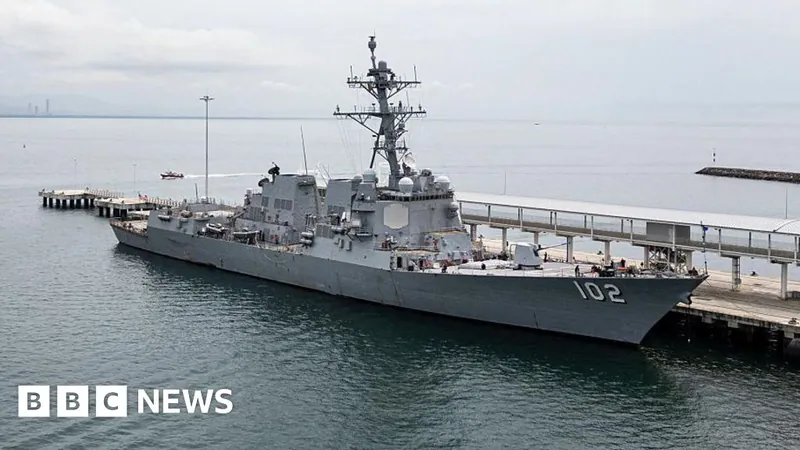
Trump's Bold Moves in the Caribbean: What’s Really Happening?
2025-09-04
Author: Emma
In a surprising turn of events, the U.S. has deployed multiple warships to the Caribbean, coinciding with President Donald Trump's announcement of a military strike on a vessel he claimed was packed with drugs. The stakes in the region appear to be escalating.
Since Trump's inauguration, his administration has ramped up anti-drug efforts across Latin America, with a keen focus on Venezuela. This intensified scrutiny has seen military operations that raise eyebrows and concern among analysts.
A Direct Attack on Venezuela?
The recent bombing of a small boat purportedly leaving Venezuela has drawn severe condemnation from President Nicolás Maduro, who vehemently denies U.S. allegations linking his government to drug trafficking. Trump claims that this strike eliminated 11 members of the Venezuelan Tren de Aragua gang, asserting they were transporting "massive amounts of drugs" toward the U.S.
Just weeks prior to this event, the U.S. set a staggering $50 million bounty for information leading to Maduro's capture. Such actions suggest that Trump’s administration is aiming for more than just stopping drug flows; they might be delving into political strategy.
Military Might Unleashed!
Analysts have noted that the scale of the U.S. naval presence in the region is unprecedented since 1965. The Pentagon’s deployment includes guided missile destroyers, the amphibious Iwo Jima group, and even a nuclear submarine, suggesting a show of force aimed at both drug traffickers and the Maduro regime.
Heather Sinister, a military strategy expert, noted that this buildup echoes the era of 'gunboat diplomacy,' with the potential to shift regional dynamics significantly. U.S. military leaders have indicated that operations are far from over, implying a persistent threat to Maduro's government.
Maduro’s Response and Regional Impacts
Maduro has retaliated by mobilizing armed militias, threatening a full response if Venezuela is attacked. However, analysts believe his claims of having 4.5 million militia members are exaggerated, as they are primarily used for political displays rather than military engagements.
Unprecedented Anti-Drug Operations?
While the U.S. frames these operations as essential anti-drug measures, experts like Rebecca Bill Chavez have criticized the nature of the deployment, saying it deviates from typical Coast Guard-led operations. The legality of the strike has also been questioned, with experts noting potential violations of international law.
Mixed Signals from the Trump Administration
Despite the hardline approach against Maduro, the Trump administration's tactics seem contradictory. They have engaged in limited cooperation with the Venezuelan government on issues like migrant deportations and even allowed some oil operations to resume. This has left observers puzzled about the U.S.'s overarching strategy in the region.
Chavez highlighted the confusion stemming from the juxtaposition of military escalation and diplomatic overtures, questioning the true intentions behind the U.S.'s actions in the Caribbean. With tensions rising, many are left wondering what the future holds in U.S.-Venezuela relations.
Final Thoughts
As the situation continues to unfold, it’s clear that the Trump administration is willing to take bold steps to exert influence in the Caribbean. But whether this leads to a strategic victory or escalating conflict remains to be seen.
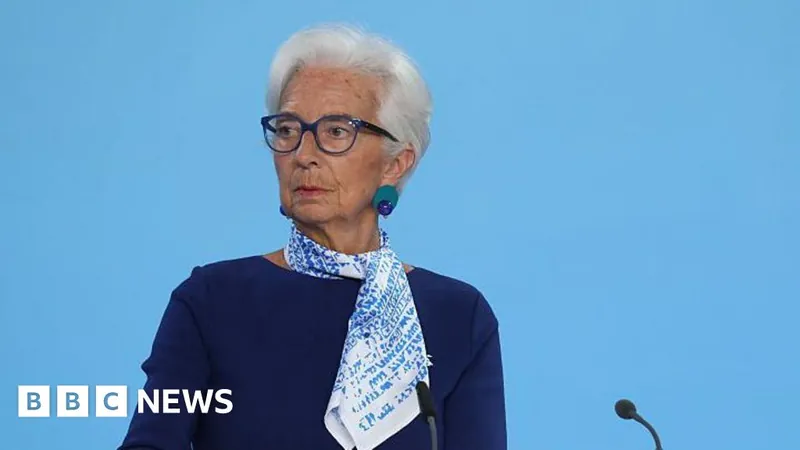




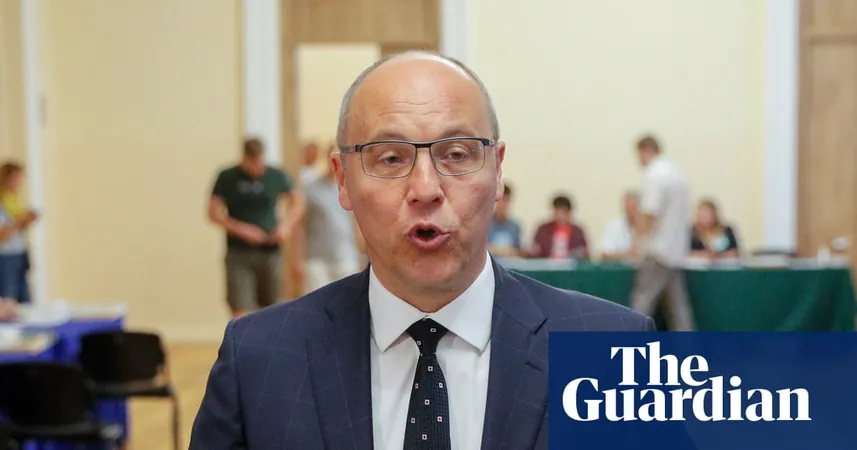
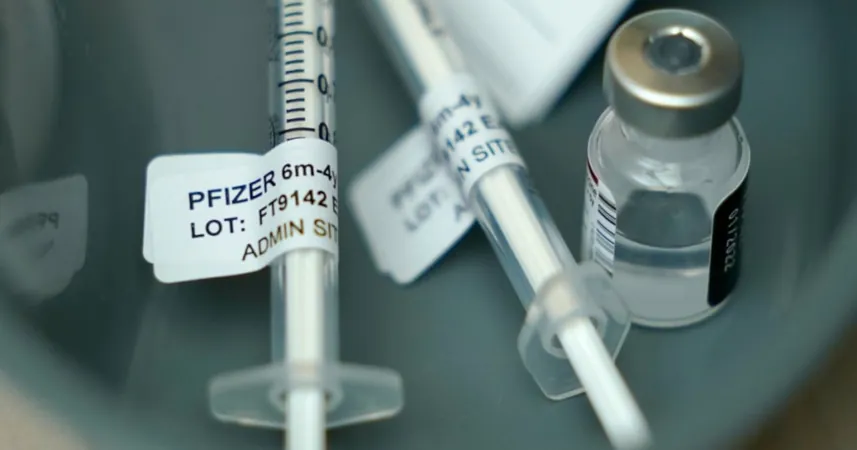

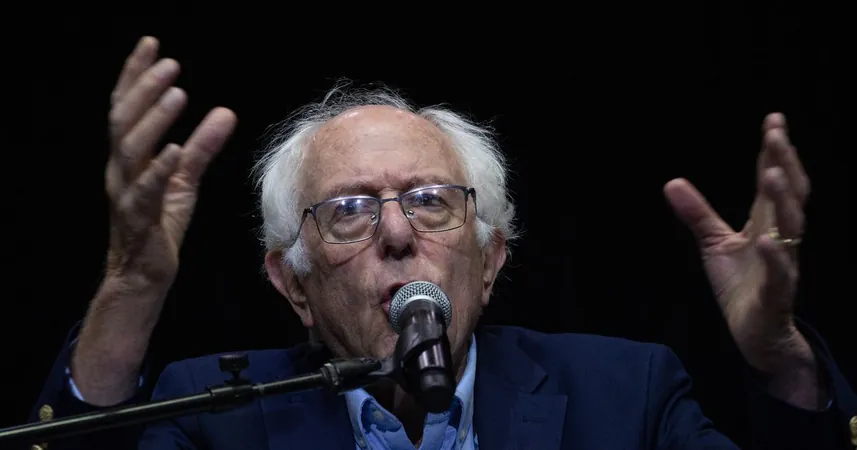
 Brasil (PT)
Brasil (PT)
 Canada (EN)
Canada (EN)
 Chile (ES)
Chile (ES)
 Česko (CS)
Česko (CS)
 대한민국 (KO)
대한민국 (KO)
 España (ES)
España (ES)
 France (FR)
France (FR)
 Hong Kong (EN)
Hong Kong (EN)
 Italia (IT)
Italia (IT)
 日本 (JA)
日本 (JA)
 Magyarország (HU)
Magyarország (HU)
 Norge (NO)
Norge (NO)
 Polska (PL)
Polska (PL)
 Schweiz (DE)
Schweiz (DE)
 Singapore (EN)
Singapore (EN)
 Sverige (SV)
Sverige (SV)
 Suomi (FI)
Suomi (FI)
 Türkiye (TR)
Türkiye (TR)
 الإمارات العربية المتحدة (AR)
الإمارات العربية المتحدة (AR)